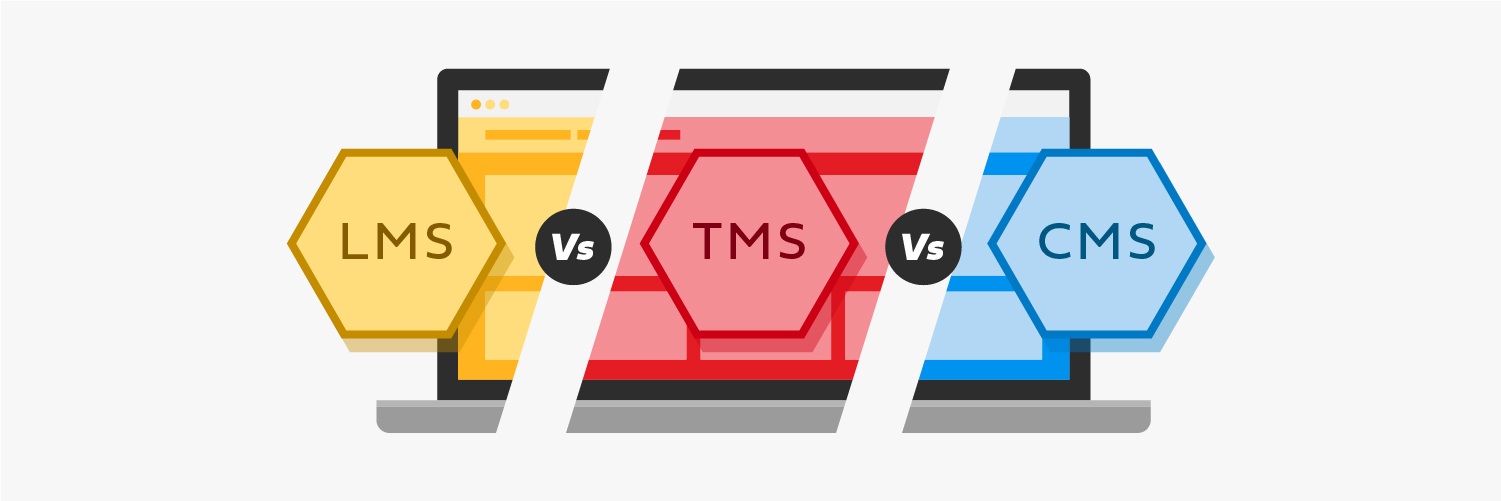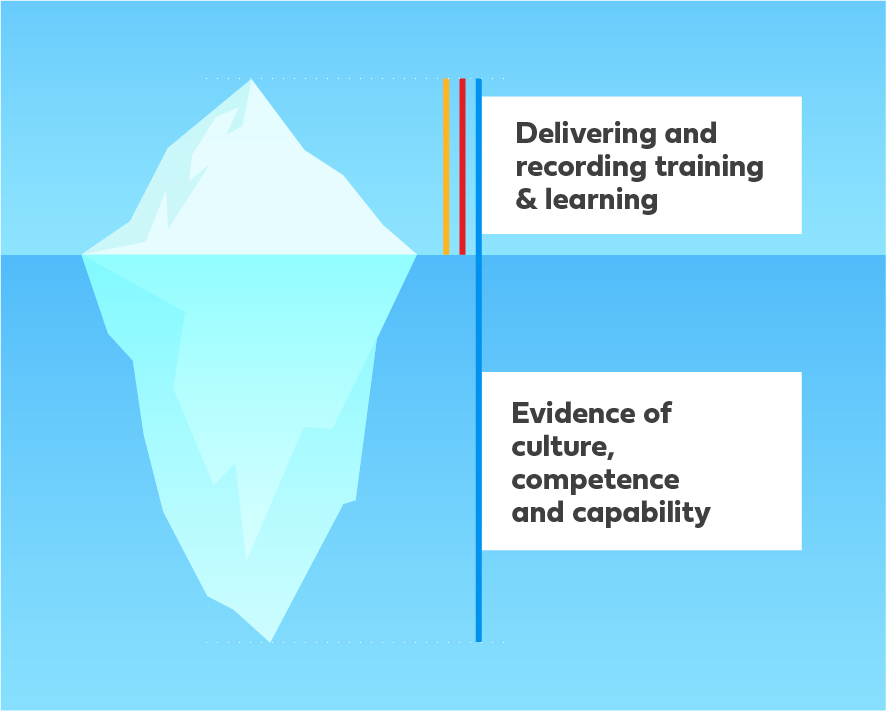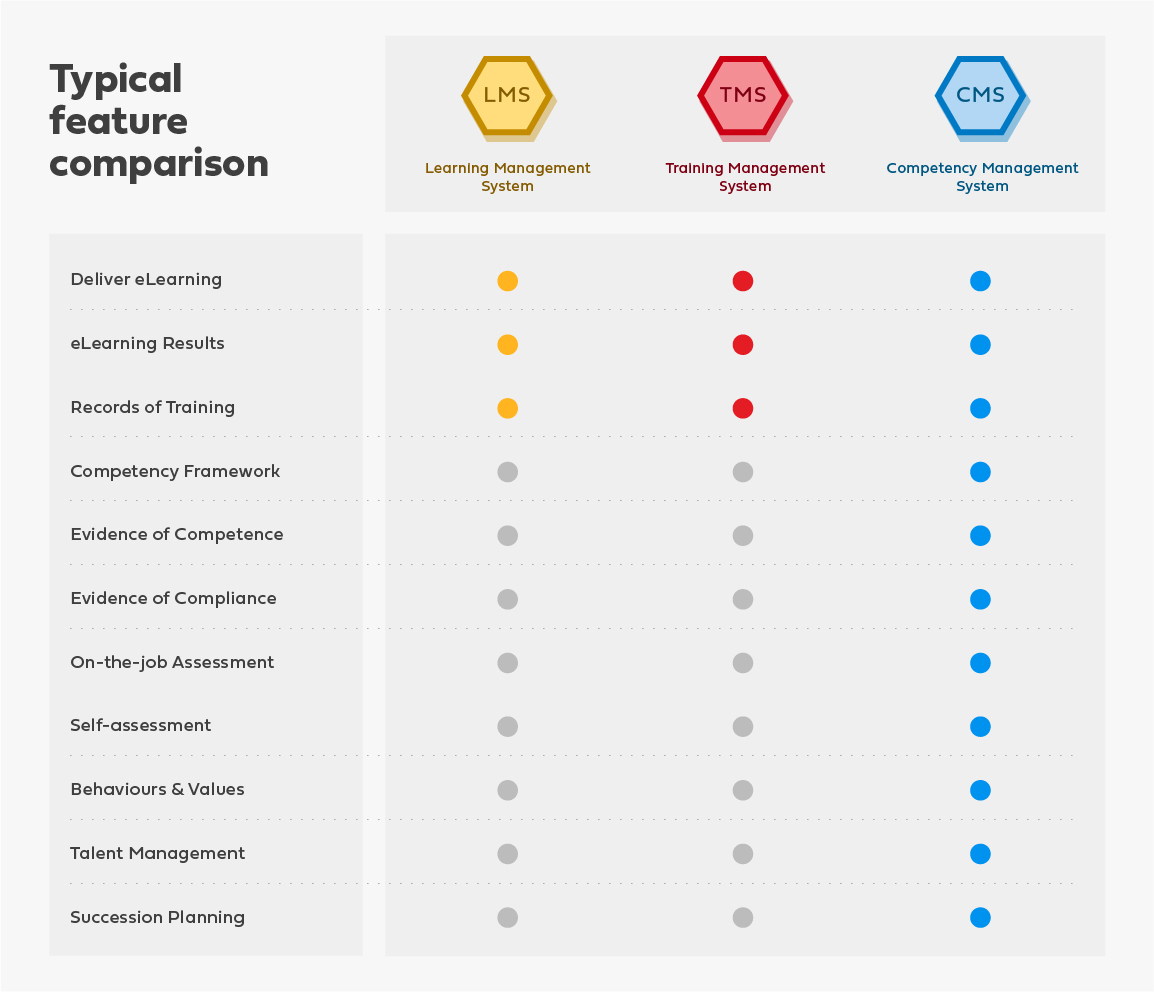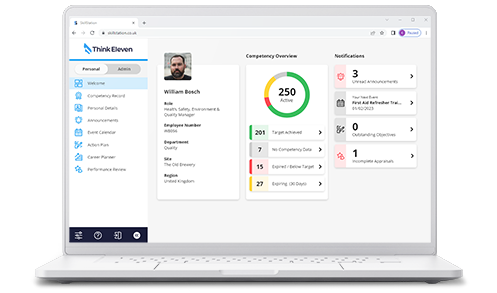Learning management system, Training management systems and Competency management systems - we look at the differences between them and why its important to choose the right one.
We receive a significant number of enquiries where a client’s requirement is defined as either a Training Management System (TMS) or Learning Management System (LMS).
After a quick discussion, what they really require is a very different system and approach - a Competency Management System (CMS).
Tip of the iceberg
If your approach to L&D is focusing on the tip of the iceberg, it’s time for a review of the processes that support this important business process.
TMS vs. LMS vs. CMS
Training Management System (TMS)
A TMS tends to focus on the delivery and recording of training activity, e.g., courses. Whether that be external, internal and/or on-the-job. The risk is that it tends to be a record of attendance, which does not always result in an increase of knowledge, skills, or capability.
Learning Management System (LMS)
An LMS is primarily used to deploy eLearning content and record the results on completion, usually through a knowledge assessment such as a multiple-choice assessment.
An LMS tends to focus on the delivery of knowledge and understanding. These systems often struggle to record and capture the wider learning & development activity utilised across most organisations. Sadly, most organisations tend to refer to all L&D systems as a learning management system (LMS) when that might not be the case.
If you’re looking for a new L&D system, be clear about your requirements and make sure you’re using the correct terminology when searching for your preferred solution.
Competency Management System (CMS)
A CMS captures all aspects of L&D including the journey, processes, and interventions for an individual to progress through their career lifecycle.
This may include, but is not limited to:
- Training – conventional face-to-face, internally, and externally delivered, on the job training, coaching, mentoring etc.
- Assessments – a variety of assessment methods which can also be combined and weighted to provide robust evidence of increased knowledge, skills, and capability.
- Knowledge – the ability to assess the acquisition of knowledge through a range of assessments such as multiple-choice assessments, short answer free text Q&A, projects etc.
- eLearning – some CMS platforms also support and incorporate a learning management system (LMS) module too.
- Competence – the ability to demonstrate that the required level of proficiency (competence) has been achieved in a robust and rigorous way including the supporting evidence to support this.
- Culture – the ability to define assess alignment with an organisation’s human factors such as values and behaviours.
- Reporting – the ability report across all your L&D activity to identify, develop and manage your talent.
To expand further on the final point of reporting, all systems, LMS, TMS and CMS have reporting capabilities to varying degrees. A good CMS should include a variety of reports including:
- Skills Matrices by organisation, department, and role/function.
- Expiry reports to identify when retraining and recertification is required.
- Succession Planning to identify potential successors for key roles.
- Training Duration to identify how much time you’re investing in your people.
- Training Feedback/Evaluation to assess the quality of training provision.
- Qualification to identify the range of academic qualifications across your organisation.
- Training Cost to establish how much you’ve invested in people, skills, training providers, etc.
- Training Needs Analysis to identify gaps and training requirements and priorities.
This range of reporting capability simply isn't present in most LMS and TMS systems leaving potential blind spots in you L&D plan. All of these reports (and more!) are available within SkillStation.
Functional Requirement Specification (FRS)
Before searching for your next system, we strongly encourage you to develop a functional requirement specification (FRS) to define the scope of functions/features that it needs to deliver. This can then be used to search and shortlist your preferred systems and suppliers.
SkillStation
SkillStation is our secure online Competency Management System (CMS) delivering extensive functionality and capability at a very competitive price. To find out more, why not visit our website or request a free demo and quotation.




